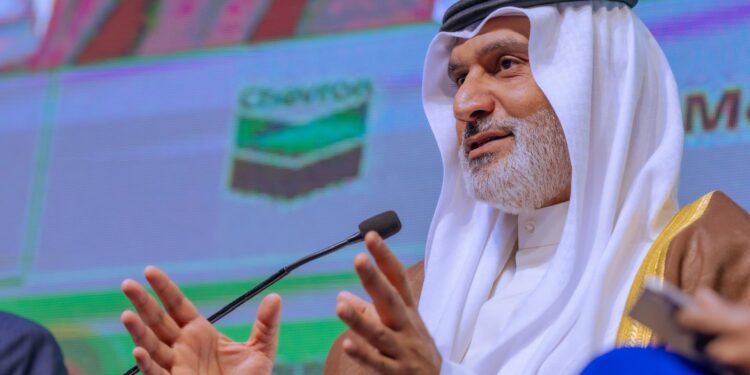The Secretary-General of the Organisation of the Petroleum Exporting Countries (OPEC), Haitham Al-Ghais, has called on African nations to unlock the continent’s vast oil reserves—estimated at over 120 billion barrels—by attracting more investment into the sector.
Speaking at the Nigeria International Energy Summit (NIES) 2025 in Abuja on Tuesday, Al-Ghais emphasised Africa’s vital role in the global energy market.
He urged governments and investors to take advantage of the continent’s oil wealth, warning that failure to do so could hinder economic development.
”Africa will play a crucial role in our energy future. The continent’s proven oil reserves amount to around 120 billion barrels. The world will need more of this oil in the future. Therefore, the African oil and gas industry must attract the level of investment necessary to unlock this great potential,” Al-Ghais stated.

He cautioned against what he called misguided policy recommendations and overly ambitious global energy targets, arguing that such measures could negatively impact Africa’s energy development.
Al-Ghais criticised arbitrary deadlines for reducing carbon emissions, stating that they could be detrimental to African economies that rely on fossil fuels for growth.
“In recent years, the world has been bombarded by a swathe of misguiding policy recommendations, overly ambitious targets, and arbitrary deadlines that amount to extreme and wishful thinking. If such calls were heeded, we can only shudder at the possible consequences for developing countries and Africa,” he warned.
He urged African leaders to adopt a balanced and realistic approach to energy policy, ensuring energy security, meeting rising demand, reducing emissions responsibly, and increasing access to energy for the millions who lack it.
Al-Ghais’ remarks come during global debates on energy transition and the push for cleaner alternatives to fossil fuels.
While some African policymakers support a just energy transition that allows countries to develop their oil and gas sectors alongside economic and developmental goals, others argue that Africa should prioritise exploiting its fossil fuel resources rather than rushing to reduce emissions.


